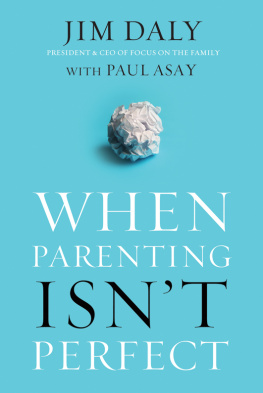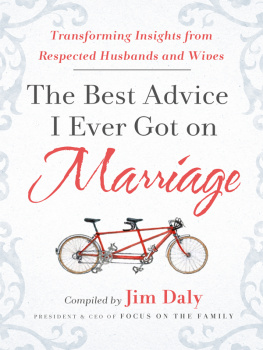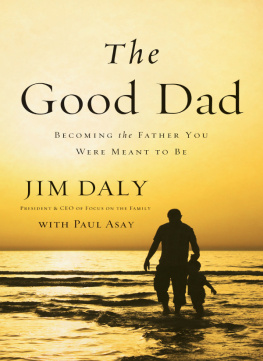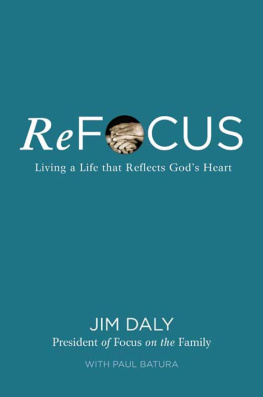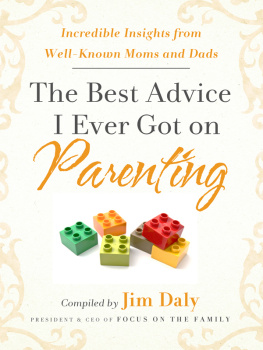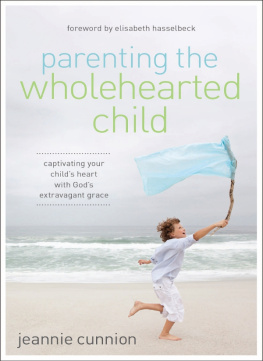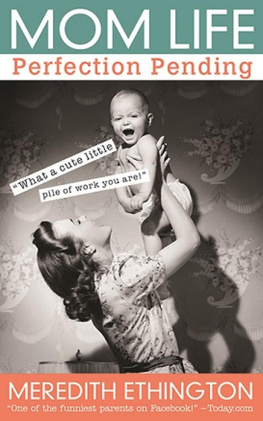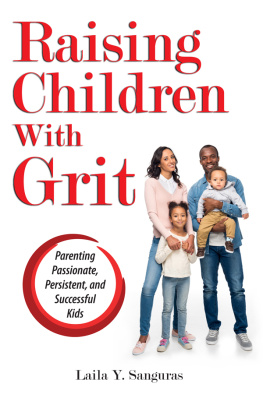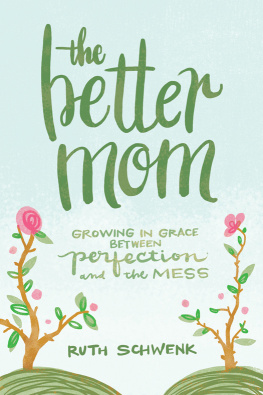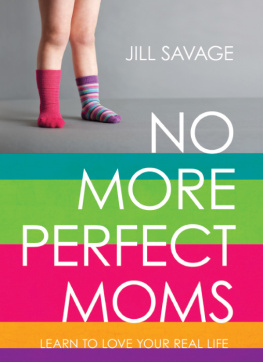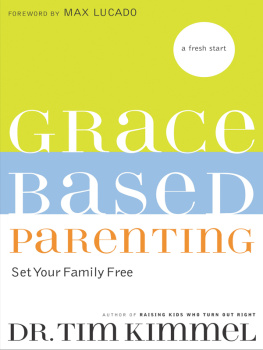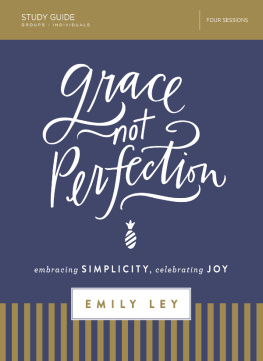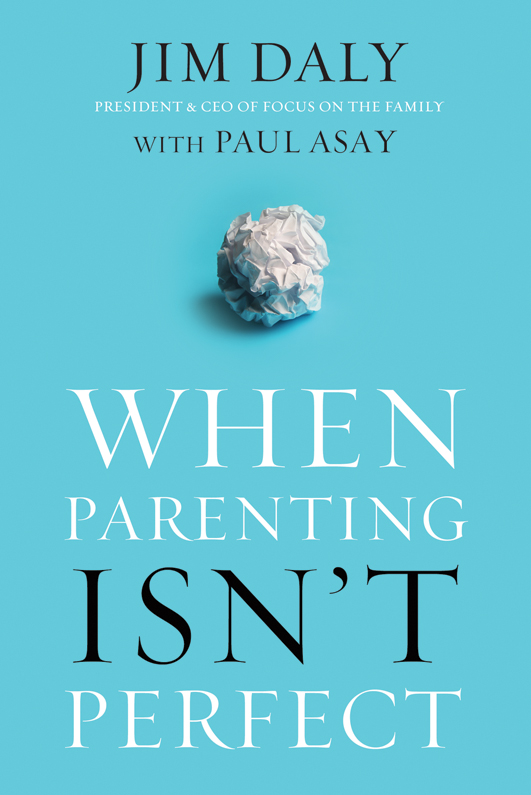CONTENTS
Guide
Praise for
When Parenting Isnt Perfect
Jim Daly has done a great job in reminding parents that perfection is not only unattainable but harmful in the journey of parenting. Gods grace is available in abundance for good reason: we all need it. Perfectionism is slow suicide!
DR. KEVIN LEMAN, New York Times bestselling author of Have a New Kid by Friday
This book is long overdue. Many moms and dads today are beating themselves up because they are not perfect. This book shows parenting for what it isimperfect. It highlights the beauty of imperfection and lets parents off the hook, so that they can focus on the tangible truths and realities of parenting. A must-read for every parent. My friend Jim Daly has not only nailed this topic; Ive seen him live it out with his own children.
MITCH TEMPLE, licensed marriage and family therapist, author, and executive director of The Fatherhood Commission
As the president of Focus on the Family, Jim Daly lives and breathes parenting, and he truly understands the challenges parents face today. In When Parenting Isnt Perfect, Jim has written a book that all parents, regardless of their season of life, are and will be high-fiving about, since they all know its true: perfect parenting is just not possible.
BRAD LOMENICK, former president of Catalyst and author of H3 Leadership and The Catalyst Leader
As a parent, I know its easy to feel alone in your worries, shortcomings, and failures, assuming that everyone else has it all together. In this incredibly timely book, Jim Daly offers a much-needed shot of grace to stressed-out parents everywhere and reminds all of us that messy is often perfectly okay, and even beautiful, in Gods eyes. When Parenting Isnt Perfect is an absolute must-read for families everywhere.
REV. SAMUEL RODRIGUEZ, president of the National Hispanic Christian Leadership Conference (NHCLC)
Also by Jim Daly
Marriage Done Right: One Man, One Woman
The Good Dad: Becoming the Father You Were Meant to Be
ReFocus: Living a Life That Reflects Gods Heart
Stronger: Trading Brokenness for Unbreakable Strength
Finding Home: An Imperfect Path to Faith and Family
To parents everywhere
who love their children
and want their hearts rooted in Christ
I first met Jim Daly quite soon after he had become president of Focus on the Family. I had flown in to do a series of radio broadcasts at the ministry headquarters, and Jim asked to meet before the recordings began. Since I didnt know much about him, I was curious about him. I was aware he had a lot of pressure on him to perform at high levels in his new role.
Within a few minutes, I remember thinking, I could hang out with this guy. He was real and vulnerable. Authentic. There was zero attitude. In fact, he was telling stories on himself where he came out looking like a fool, and hed laugh his head off. I was quickly drawn to Jims realness.
That meeting fostered a friendship that has lasted for many years and through many radio broadcasts. In fact, Jim is now a Fellow of the Townsend Institute, and a very popular one.
In addition to the friendship, however, I deeply respect Jims thoughts, writings, and speaking. I have shared keynote speaking stages with him and have greatly benefited from his books. Jim researches his topics thoroughly and biblically, and he writes from his own experience. And Jims writing is who he isauthentic and himself. You can trust what he writes because he doesnt mind showing the reader how he has grown and changed. Most of us have a difficult time reading authors who always appear to have it all together.
Because of who Jim is, I cant think of anyone more suited to write a parenting book about dealing with our imperfections in that role. Jims authenticity and vulnerability come through as he describes learning from his own mistakes as a parent. As readers, we immediately come out of the shame attack that all of us parents feel, in areas where we have made so many mistakes with our kids. Jim normalizes imperfection, shows us how to deal with it, and moves on to offer solutions for parenting problems. The chapter titled Not Good Enough alone is worth the price of the book.
What an important book for any parent to read today! We are always assessing ourselves to see if we parent well:
Am I spending enough time with my children?
Am I listening and encouraging well?
Am I not strict enough, or am I too strict?
Is there a guarantee that I wont royally damage my kids?
Our culture and the media dont provide a lot of answers. But Jim offers many healthy ways to support our childrens growth in the nurture and admonition of the Lord (Ephesians 6:4 KJV) and from a position of grace and acceptance for the parent.
What a relief to read a balanced book with valuable ideas that helps the reader be the kind of grace-filled parent Jim writes aboutthe kind of parent who courageously embraces the great adventure of parenting. Thanks, Jim, for a brilliant contribution.
JOHN TOWNSEND,
New York Times bestselling author of Boundaries,
psychologist, and founder of the Townsend
Institute for Leadership and Counseling
I learned about family between commercials.
My mother was hardly ever around when I got home from school. As a single mom keeping five kids fed and clothed, she worked a lotoften from ten in the morning to eleven at night. My dad wasnt around. And my brothers and sisters, all older than me, were off doing other stuff. I was a latchkey kid before anyone had a name for it.
Most days, then, I came home to an empty house. Just me and the TV.
And so television became my childhood companion. After returning home from school, Id close the door, pull a Cactus Cooler out of the fridge, flip on the television, and plop down on the floortummy on the carpet, feet banging against the couch, my hand within easy reach of the dial. And for an hour or two, Id join another, better family. A family where parents hugged and advised and gently scolded their kids, where even the biggest problems could get solved before bedtime.
Great, loving families filled the television screen back when I grew up in the 1960s and 70s. Bill Davis and his butler, Giles French, raised his orphaned nieces and nephew in CBSs Family Affair. Widower Steven Douglas gently taught his trio of boys in My Three Sons. In The Brady Bunch (an avant-garde creation, since it depicted a blended family), architect and widower Mike Brady marries widow Carol Ann Martin, combining their collective brood of three daughters and three sons into one of televisions most beloved families.
These were the most normal families I knewnearly the only constants I had for much of my childhood. (Yes, I joined Marcia Bradys fan club.) These shows gave me a healthier perspective of what families should look like. I found elements in them I could relate to and take comfort from. We became a blended family for a while, just like The Brady Bunch. Then when I lost my mom, I took solace in the fact that the boys in My Three Sons had no mother either.
These families resembled mine, but seemed better. More reassuring. Mike and Carol Brady always had the right answers. Steven Douglas never got drunk. Bill Davis cared for his nieces and nephews as if they were his very own children. Amazing. On television, it seemed like the families on the small screen always did things well. They did things the

